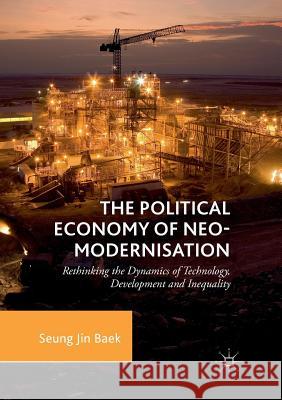The Political Economy of Neo-Modernisation: Rethinking the Dynamics of Technology, Development and Inequality » książka
topmenu
The Political Economy of Neo-Modernisation: Rethinking the Dynamics of Technology, Development and Inequality
ISBN-13: 9783030082420 / Angielski / Miękka / 2019 / 343 str.
The Political Economy of Neo-Modernisation: Rethinking the Dynamics of Technology, Development and Inequality
ISBN-13: 9783030082420 / Angielski / Miękka / 2019 / 343 str.
cena 523,30
(netto: 498,38 VAT: 5%)
Najniższa cena z 30 dni: 501,19
(netto: 498,38 VAT: 5%)
Najniższa cena z 30 dni: 501,19
Termin realizacji zamówienia:
ok. 22 dni roboczych.
ok. 22 dni roboczych.
Darmowa dostawa!
Kategorie:
Kategorie BISAC:
Wydawca:
Palgrave MacMillan
Język:
Angielski
ISBN-13:
9783030082420
Rok wydania:
2019
Wydanie:
Softcover Repri
Ilość stron:
343
Waga:
0.44 kg
Wymiary:
21.01 x 14.81 x 1.93
Oprawa:
Miękka
Wolumenów:
01
Dodatkowe informacje:
Wydanie ilustrowane











